What a difference a year and a diverse cast makes.
This time last year on Big Brother All-Stars, Cody Calafiore was leading an all-white group of players called ‘The Committee’ that had already voted out the one Muslim player, and would eventually send packing the three Black players and one gay player without a lot of compassion.
It’s been the pattern of the show.
Minority contestants have struggled to gain traction, often put in the Big Brother house with an overwhelming number of white players.
In fact, no African American male has ever won the show in its previous 22 seasons.
CBS was aware of the ongoing accusations of racism on the reality TV show and executives finally did something about it.
Earlier in the year CBS announced that all cast members on their reality shows moving forward would be at least half people of color.
“The reality TV genre is an area that’s especially underrepresented, and needs to be more inclusive across development, casting, production and all phases of storytelling,” said George Cheeks, president and chief executive officer for the CBS Entertainment Group. “As we strive to improve all of these creative aspects, the commitments announced today are important first steps in sourcing new voices to create content and further expanding the diversity in our unscripted programming, as well as on our network.”
And what a huge difference that’s making.
From last years six member Committee:
To this years six member Cookout:
During the first couple of days in the house, Derek Frazier, Tiffany Mitchell, Azah Awasum, and Xavier Prather agreed they wanted a Black player to win the show.
They also pointed out Black players don’t often make it to the jury house, so they decided to align to protect each other as far as possible, with the goal of one of them winning.
The initial four later pulled in biracial players Kyland Young and Hannah Chaddha, naming their group The Cookout.
Four weeks into the competition, no one has detected the alliance, and four white players in a row have been voted out to start the season.
Two more white players, Sarah Beth Steagall and Britini D’Angelo are up for eviction this week.
The Cookout has laid out a deliberate plan in direct reaction to what happened last year.
For his part, Calafiore, on his Twitch gaming channel, has dismissed the accusation that race had anything to do with his strategy.
He’s defended controversial players like GinaMarie Zimmerman and Jackson Michie saying ‘they were crucified’ when they left the show (not acknowledging that maybe their comments and actions deserved it).
He even argued that last seasons cast was ‘as diverse as this seasons.’
But that simply isn’t true.
The All-Star season had an 11 to 5 white advantage in the house.
This season, for the first time ever, there is an even split among white players and people of color, making the dynamic of the game completely different.
The Season 16 cast in 2014, of which Calafiore was part, had a 13 to 3 white player advantage.
What we are seeing this year is that it makes a huge difference when true diversity, backed up by numbers, is included in the game.
So far, four white players have been voted out of the house driven in large part by the strength of the Cookout’s influence.
While Big Brother fans have notoriously not enjoyed dominant alliances, many are rooting for the Cookout members, noting it’s refreshing to watch strong players of color compete.
Social media has been buzzing for weeks, encouraged to see the roles reversed as majority alliances previously, like the Committee, consisted of only white players.
Over the past two decades, Big Brother has been criticized for racism and discrimination.
In 2013, Aaryn Gries referred to Asian people as “squinty-eyed,” called her Black roommate Candice Stewart “Aunt Jemima” and asked her Korean housemate Helen Kim to “go make some rice.”
Zimmerman and Spencer Clawson were also accused of insensitive comments during the season, so much so that host Julie Chen Moonves spoke about it on The Talk.
“It stung,” the host said at the time. “I took it personally. The really sad part was it took me back to the ’70s when I was growing up in Queens, when I was 7, being bullied and being called a chink … the year is 2013! Then I felt ignorant. There are still people who feel that way? Yes, there is.”
However, claims of discrimination continued past Season 15.
Moments before being crowned the season 21 winner in 2019, Michie was shocked when Chen informed him that his houseguests had expressed concerns about his behavior, making choices based on race or age — something he denied, but later apologized for.
Additionally, season 21 contestant Kemi Fakunle spoke out, revealing she was “disgusted” about what was happening inside the Big Brother house, seemingly alluding to aggressive comments made by Jack Matthews during the live feeds.
“The audience is able to view the show during the multiple weekly broadcasts as well as on the 24/7 live, online stream, which captures unedited content of the contestants’ unfiltered moments in the house,” the network and the show’s producers said in a statement in July 2019. “At times, the houseguests say things that we do not condone. We share some of the viewers’ concerns about inappropriate behavior and offensive comments, and producers have addressed specific incidents with the houseguests involved. However, there is absolutely no truth that the casting of the show is racially motivated, that the houseguests’ behavior is predetermined or that the outcome is controlled in any way.”
But it still took another season before meaningful changes were made.
It’s questionable whether Calafiore, or many of the other past victors, would have won in a cast as diverse as this year.
We’ll never know if they possessed the skill and ability to interact with people of different interests and backgrounds.
What’s certain is that the era of overwhelming whiteness on CBS reality shows is over.
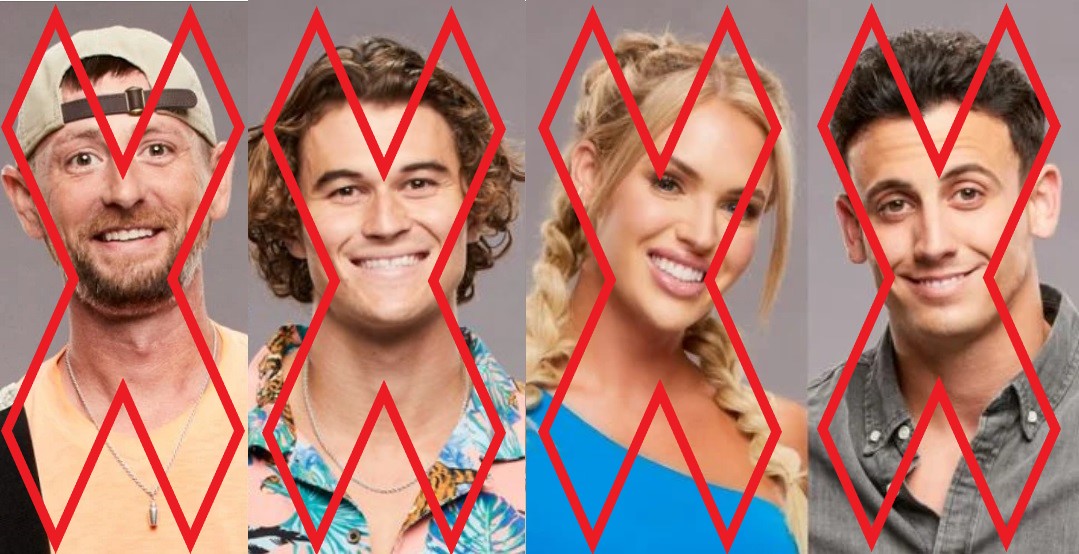
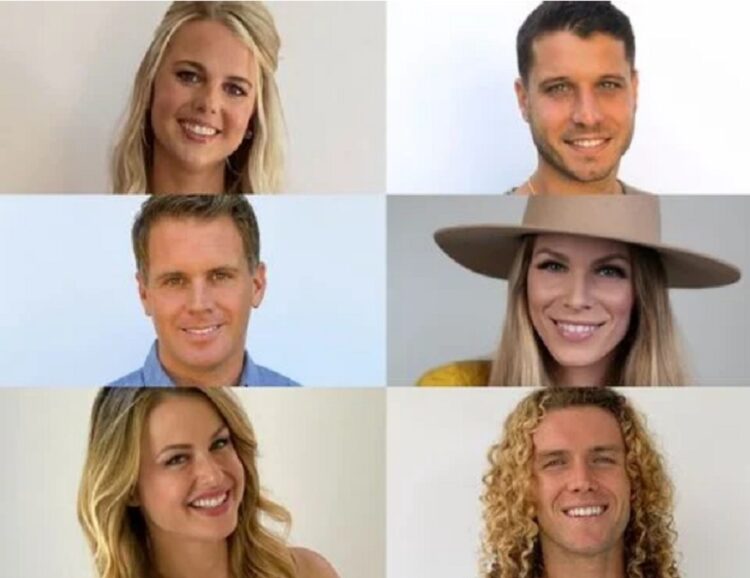
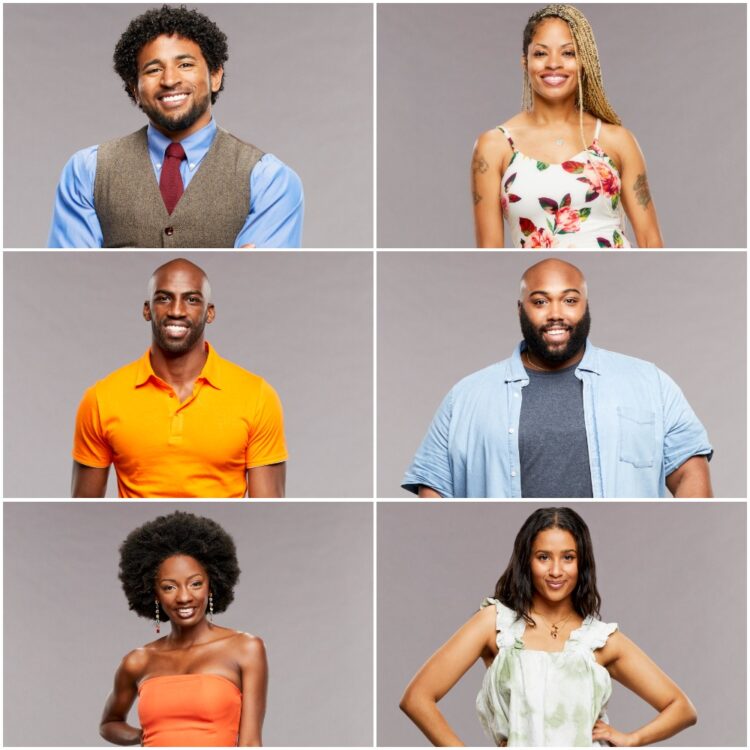
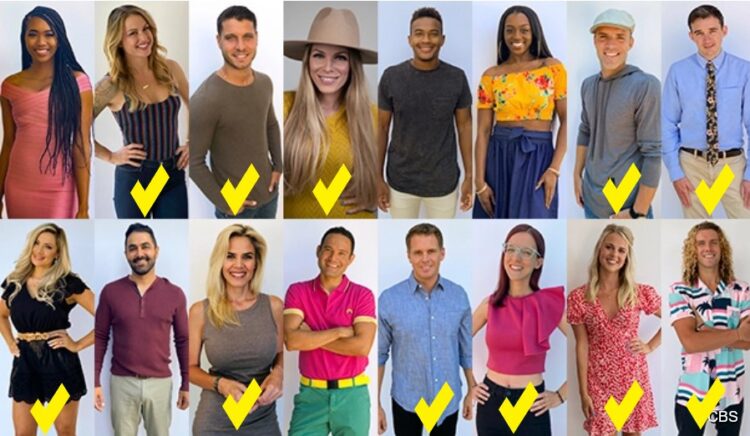
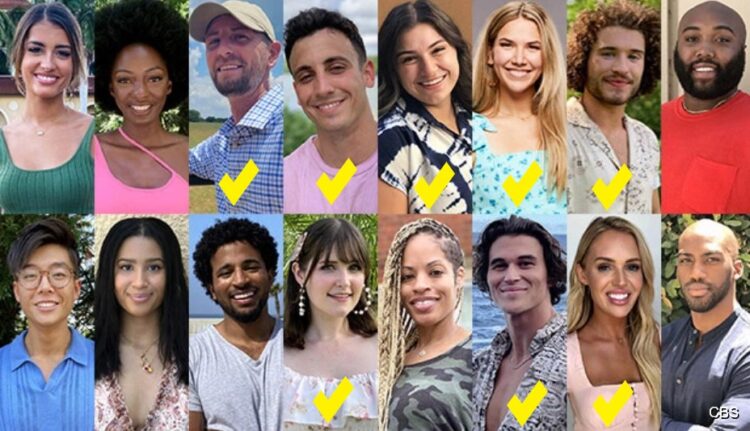
Funny it’s so terrible when previous winners seemingly ended up running socially inept players of which there were black players but when black players openly promote racism it’s applauded, disgusting and I’m sure MLK is throwing up. Btw since when did 13% of the population equate to half? Must be new math too along with CRT
If you can’t see how racist this comment is then you’re beyond help. Seriously.
It’s almost as if in order for a black person to win they literally have to have the majority to form an alliance.
If an all white alliance was BLATANTLY formed (the committee wasn’t based on race) the members would lose their jobs.
I don’t want 50 percent of the players to be poc. 50 percent of the country isn’t poc.
America is becoming more diverse each year.
Instead of trying to justify past racist behavior, maybe applaud the way the people of color in the game have unified and stuck together on top of being strong competitors. No one batted an eye when the Committee blew threw the house last year with an all white alliance. Its refreshing to see people other than the white jock have a chance to win.
I like the cookout but the “committee ” wasn’t targeting players just because of their color. Another thing, what if the cookout got found out weeks ago…what are the white players supposed to do? You would have black against white and isn’t that what we’re trying to fight against…
What’s racist is why the cookout alliance was formed.
I’m disappointed to see player X openly exclaim on the show ” Do you think those guys on the jury realize they are all white yet? Haha! We did it!” This isn’t the Big Brother I knew. I thought it was a game. Not pick people off based on skin color. That’s not entertainment. It’s some sort of political statement and doesn’t belong on that platform or anywhere. Really a sad statement. Not a proud moment for Big Brother to support in any such case.
Each season the few minority players are eliminated by white majorities. This is exactly the Big Brother you knew, only reversed so you can experience the other side of the issue.
Yes but in the past the white players weren’t saying ok let’s get rid of these players first because they’re black or poc like the cookout is doing. They even say that they have closer friends in the house besides other cookout members yet they vote them out only because they’re white. It’s exactly what black players or poc would not want happen to them but yet it’s ok the other way around?
A majority doesn’t have to state the obvious. The Committee was a bunch of white players who systematically eliminated all the minority players. We’ve seen it happen season after season. This was a truly diverse cast and the tables were turned. About time.
A. Not one of the previous power alliances said, let’s get rid of the people of color. No one said whatever else happens, a white person must win, we can not allow a person of color to win this. That is the difference. It’s choosing to eliminate people based solely on their race that is wrong. But, the cookout has said those very things against the white people and that is, by definition, racist.
B. The plan to use someone from outside their alliance as a shield and not getting together in a room to plot and then sticking with their alliance even when you don’t like them or what they do in the game is just…well…genius. A plan for success that has never been done before. That, I truly applaud.
Not one person not of color on this season has targeted those they are aligned with because of the color of their skin. I can promise if someone said, hey, let’s get rid of the black people, we want a white person to win…well…I’d be up in arms about that and so would a ton of others. How is this different.
On the other hand, in Big Brother you play the game for the end goal. Each of those 6 want to win and they are not one of them bullying or excluding or harassing anyone to achieve their goal.
They may not have said it but their actions spoke it. Dan voted out the only Black player on his team when the white player he kept performed worse. Last year and Cory is blind if he didn’t acknowledge the racism and favoritism in the all stars Season 23 when they voted Bay and Day out for talking to each other. Falsely claiming that they knew each other prior to entering the house. Especially given that most of the All Stars were friends and strategized to the end. To the extent that Nicole couldn’t handle her eviction. And it’s just racist for him to support what GinaMarie and Aryn did to Candace I believe it was. He needs to get a clue and re read BB’s history and last year’s HG’s were not as diverse as this one. Christmas and Memphis were really awful with Memphis getting away with bullying David. Not to mention Miche and other racists on the show.
Interestingly that you just happen to forget Cody was actually in an alliance with Bay and Day. The Committee didn’t become a real alliance until Memphis and Christmas won comps. Had Bay and Day won an hoh, Cody may have gone with them. Also, you seemingly forget to mention that Bay was supposed to be a member of The Committee but wasn’t because she was tightly aligned with Day so she was replaced by Nicole F. That’s the facts that you should mention and not just what parts you want to mention. Also, if you’re going to say Michie’s initial nominations during camp director were based on race, then explain why he would nominate a white southern male over I don’t know the other people of color being Ovi, Bella and Analyse. He nominated David, Cliff and Jessica because they were campaigning for camp director as well and Kemi never talked to Michie at all (she says otherwise but it’s been proven she wasn’t telling the truth).
Calafiore was in a variety of alliances but the only one he was truly working in was The Committee. He has already stated that Day scared him and he was anxious for her to leave the house. The fact remains The Committee was all white, and they eliminated all people of color, much like The Cookout is doing to white players this season.
I agree!!
Only a liberal would equate past seasons of “white alliances” with this in your face, racist alliance ADMITTED to be formed based on skin color. That’s the factual difference. We have never had a white alliance formed openly regarding skin color or everyone would call it out.
just another example of liberal hypocrisy. Grow up. Racism is ALL wrong – period.
Only a white nationalist would look at past seasons and say ‘there is no problem here.’ CBS finally did the right thing and mandated true diversity. And look what happened. The tables were turned. It’s time for Big Brother players to navigate in the game what’s happening in the country. Two more decades until people of color are the majority, and let’s start getting along now to avoid another race war.
Why is CBS promoting racism?? The Cookout is a blatantly RACIST group who is targeting every member of the house SIMPLY BECAUSE OF THEIR SKIN COLOR! So Why the hell is CBS promoting this BULLSHIT? I have never missed an episode of BB since it debuted and my family has always enjoyed the show, but not now. I will not let my kids watch BLATANT RACISM not only be accepted, but PROMOTED BY CBS!
Really?
What is sad about this is that it really is just blatant racism. I have never seen such blatant racism. In fact, it was always black people that always seemed racist and with an attitude towards ALL white people when they are not racist towards them., I have had it with the double standard. I know what it is like to be marginalized and treated less than. However, I never did that to anyone else just because they did that to me. You cannot change people by being total hypocrites. You cannot EXPECT people to treat you better when you are doing the opposite. You lead by EXAMPLE. and you should face the same consequences that anyone that has been canceled due to their “perceived by you” racism. These people are part of the problem , not the answer. They are just as scum worthy as anyone else that is racist, no matter what color you are. If you want change you must BE that change.
Easy to say when you’re in the majority and don’t have to worry about it. Last year, The Committee was a bunch of white players who picked off the people of color without having to say a word. We’ve seen it happen again and again. This season, for the first time ever, CBS mandated a truly diverse cast, and the tables were turned. Nothing wrong with that.
Yeah whats the point in putting an opinion out there, I see that the main problem out in this shithole of a world is that common sense doesn’t exist and no one knows the definition of humanity.
I as a woman see draw backs to being male or female, but grateful to being human, who has more to life then other living species. I have been a minority most of my life, and yes I am white, but still lived with the stigmas of being outside the norm. I have been bullied, which has give me the chance to fight for myself and my worth on this planet. So can i start a platform, just to be recognized and make others look bad. All of this is just stupidity on all your parts and just evilness from those it started it all, the Elite. the Media, the scandalous governments. Every human being should live as they want as long as it does hurt others. Only those who have earned by doing are the ones who should receive. Another words, do nothing equals get nothing. Treat each other with simple humanity. STOP CRAMMING BELIEFS OF YOURS UPON OTHERS. LIVE AND LET LIVE.